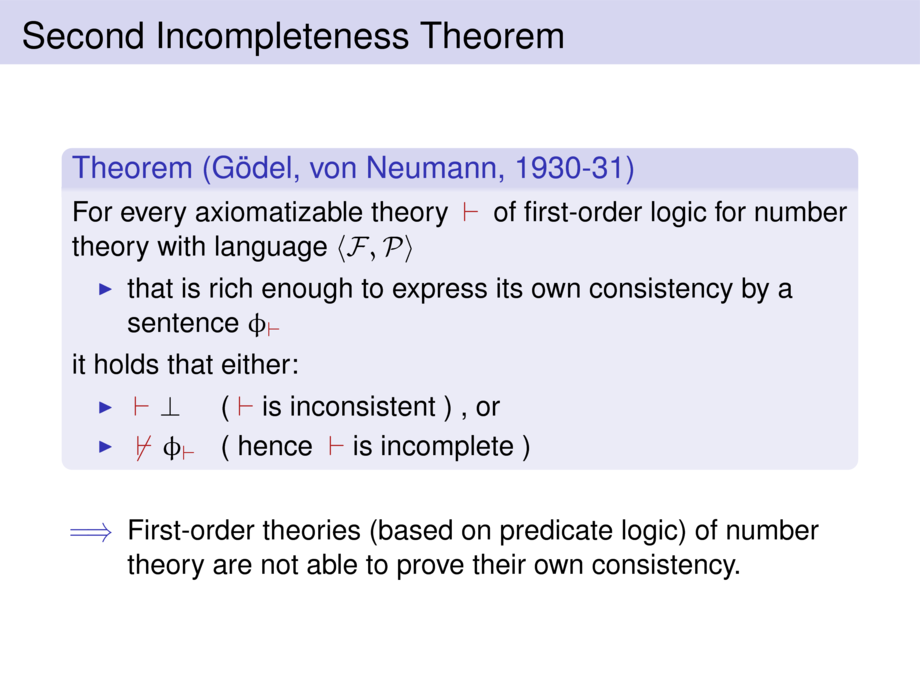



































































































152/162
\begin{frame}{Second Incompleteness Theorem}
\begin{block}{Theorem (G\"{o}del, von Neumann, 1930-31)}
For every axiomatizable theory $\derives$ of first-order logic
for number theory with language $\pair{\asetfuncs}{\asetpreds}$
\begin{itemize}
\item
that is rich enough to express its own consistency by a sentence $\aform_{\sderives}$
\end{itemize}
\pause
it holds that either:
\begin{itemize}
\item
$\derives \!\false$ \tabto{1.3cm} ($\;\sderives$ is inconsistent\;)\;, or
\item
$\derivesnot \!\aform_{\sderives}\;$ \tabto{1.3cm} (\;hence $\;\sderives$ is incomplete\;)
\end{itemize}
\end{block}
\pause\medskip
\begin{itemize}
\item[$\Longrightarrow$]
First-order theories (based on predicate logic) of number theory
are not able to prove their own consistency.
\end{itemize}
\end{frame}

